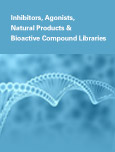| Cat. No. |
Product Name |
Information |
| PC-Ab1063 |
Ranibizumab
|
Ranibizumab (Lucentis, RG-6321) is a specific affinity-matured, recombinant, humanized, anti-VEGF antigen-binding antibody fragment (Fab) that binds and neutralizes all the biologically active forms of VEGF-A, an important mediator in the development of choroidal neovascularisation. Ranibizumab was approved by the Food and Drug Administration (FDA) for the treatment of neovascular AMD.. |
| PC-Ab1062 |
Lemzoparlimab
|
Lemzoparlimab (TJ011133 or TJC4) is a fully human, anti-CD47 IgG4 antibody that is endowed with a red blood cell (RBC) sparing property and unique binding epitope, potentially differentiating itself from other CD47 axis targeting therapies. Lemzoparlimab blocks the interaction of CD47 and SIRPα, leading to phagocytosis of various CD47+ tumor cell lines and primary AML cells.. |
| PC-Ab1060 |
Atibuclimab
|
Atibuclimab (IC14) is a chimeric CD14 antibody investigated for the treatment of patients with severe sepsis. Human monocyte differentiation antigen CD14 is a pattern recognition receptor (PRR) that enhances innate immune responses. Atibuclimab (IC14) attenuated the LPS-induced release of MIP-1beta, but not of MIP-1alpha. IL-8 and MCP-1, but not MIP-1alpha and MIP-1b, circulate in RBC-associated form during endotoxemia.. |
| PC-Ab1059 |
Aducanumab
|
Aducanumab (BIIB037) is a human monoclonal antibody selectively targets aggregated Aβ, binds to the N-terminus of Aβ peptide and recognizes aggregated forms of Aβ, including epitopes or conformations present in soluble and insoluble oligomers. The FDA approved aducanumab under accelerated approval based on reduction in amyloid plaques in Alzheimer's disease (AD).. |
| PC-Ab1058 |
Tinurilimab
|
BAY1834942 (Tinurilimab) is a monoclonal antibody against CEACAM6 that blocks downstream signaling, resulting in enhanced T-cell response.. |
| PC-Ab1057 |
Cibisatamab
|
Cibisatamab (CEA-TCB, RO-6958688) is a novel bispecific antibody immunotherapy that effectively brings the cancer cells and cancer-killing T cells of the immune system together, triggers T cell killing of cancer cell lines expressing moderate to high levels of CEA at the cell surface. It is efficacious in poorly infiltrated tumors where it increases T-cell infiltration and generates a highly inflamed tumor microenvironment.. |
| PC-Ab1056 |
Tusamitamab
|
Tusamitamab ravtansine (SAR408701) is a humanized CEACAM5-specific monoclonal antibody linked to the maytansinoid DM4, a potent anti-tubulin agent.. |
| PC-Ab1055 |
Durvalumab
|
Durvalumab (MEDI-4736) is a human immunoglobulin G1 kappa monoclonal antibody that binds to PD-L1 and blocks the interaction of PD-L1 with programmed cell death protein 1 (PD-1) and CD80 (B7.1). Blockade of PD-L1/PD-1 and PD-L1/CD80 interactions releases the inhibition of immune responses, without inducing antibody dependent cell-mediated cytotoxicity.. |
| PC-Ab1054 |
Tralokinumab
|
Tralokinumab (CAT-354) is an potent and selective IL-13-neutralizing IgG4 monoclonal antibody (mAb). Tralokinumab specifically binds with high affinity to IL-13, inhibiting its interaction with the IL-13 receptor and thereby neutralising the biological activity of the cytokine. Tralokinumab was approved for the treatment of moderate-to-severe atopic dermatitis.. |
| PC-Ab1053 |
Lebrikizumab
|
Lebrikizumab is a novel high-affinity monoclonal antibody targeting IL-13 that selectively blocks the IL-13 receptor α1 (IL-13Rα1) and IL-4Rα heterodimer signaling complex. Lebrikizumab shows high bioavailability, a long half-life and blocks IL-13 signaling.. |
| PC-Ab1052 |
Mosunetuzumab
|
Mosunetuzumab (RG7828, CD20-TDB) is a full-length, fully humanized immunoglobulin G1 (IgG1) bispecific antibody targeting both CD3 (on the surface of T cells) and CD20 (on the surface of B cells).. |
| PC-Ab1051 |
Onvatilimab
|
NJ-61610588 (Onvatilimab) is an immune checkpoint inhibitor and monoclonal antibody that targets the T-cell receptor, VISTA (PD1H), V-type immunoglobulin domain-containing suppressor of T-cell activation, to evoke an anti-tumor response. |













